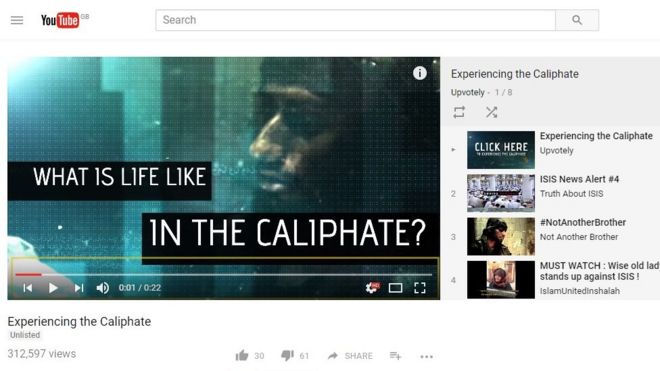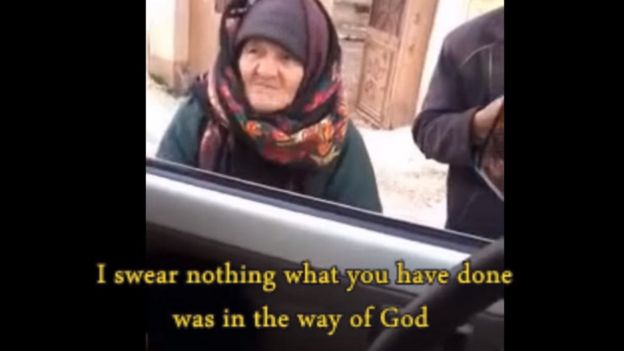YouTube to redirect searches for IS videos
YouTube to redirect searches for IS videos
 YOUTUBE
YOUTUBE
YouTube says it will redirect people searching for "violent extremist propaganda" and offer them videos that denounce terrorism.
People searching for certain terms relating to the so-called Islamic State group will be offered playlists of videos "debunking its mythology".
YouTube said it wanted to help prevent people being radicalised.
The company told the BBC that uploading IS propaganda was already against its terms and conditions.
In a blog post, the video-streaming giant said it was implementing ideas from the Redirect Method, a campaign that tries to steer the IS audience towards videos that debunk the group's recruitment tactics.
 REDIRECT METHOD
REDIRECT METHOD
The themed video playlists challenge claims by the so-called Islamic State group that it provides good governance, is a strong military force, and that world powers are conspiring to harm Muslims.
Rather than producing new material, the playlists contain videos already uploaded to YouTube that present an opposing point of view, such as:
- testimony from people who have left IS, describing what life in the group was really like
- footage of a suffering elderly lady confronting two IS fighters and telling them to "return to the way of God"
- speeches by imams denouncing violence and extremism
- footage from inside IS-controlled areas, showing the reality of life there
The Redirect Method says pre-existing videos, rather than specially commissioned content, are more effective because they are seen to be more trustworthy.
"Media created by governments or Western news outlets can be rejected on face value, for a perception of promoting an anti-Muslim agenda," the organisation says in its methodology.
 YOUTUBE
YOUTUBE
It said videos uploaded by the public "would not be be rejected outright by our target audience".
YouTube told the BBC that it would begin redirecting users searching for particular terms in English, but would later add other languages including Arabic.
Algorithms will help determine whether other search keywords need to be included in the scheme, and the company will monitor whether people are engaging with the curated playlists.
While anybody searching for terrorist propaganda would be redirected, including academics and journalists, YouTube said such content was already against its terms and conditions and was removed when discovered
No comments:
Post a Comment